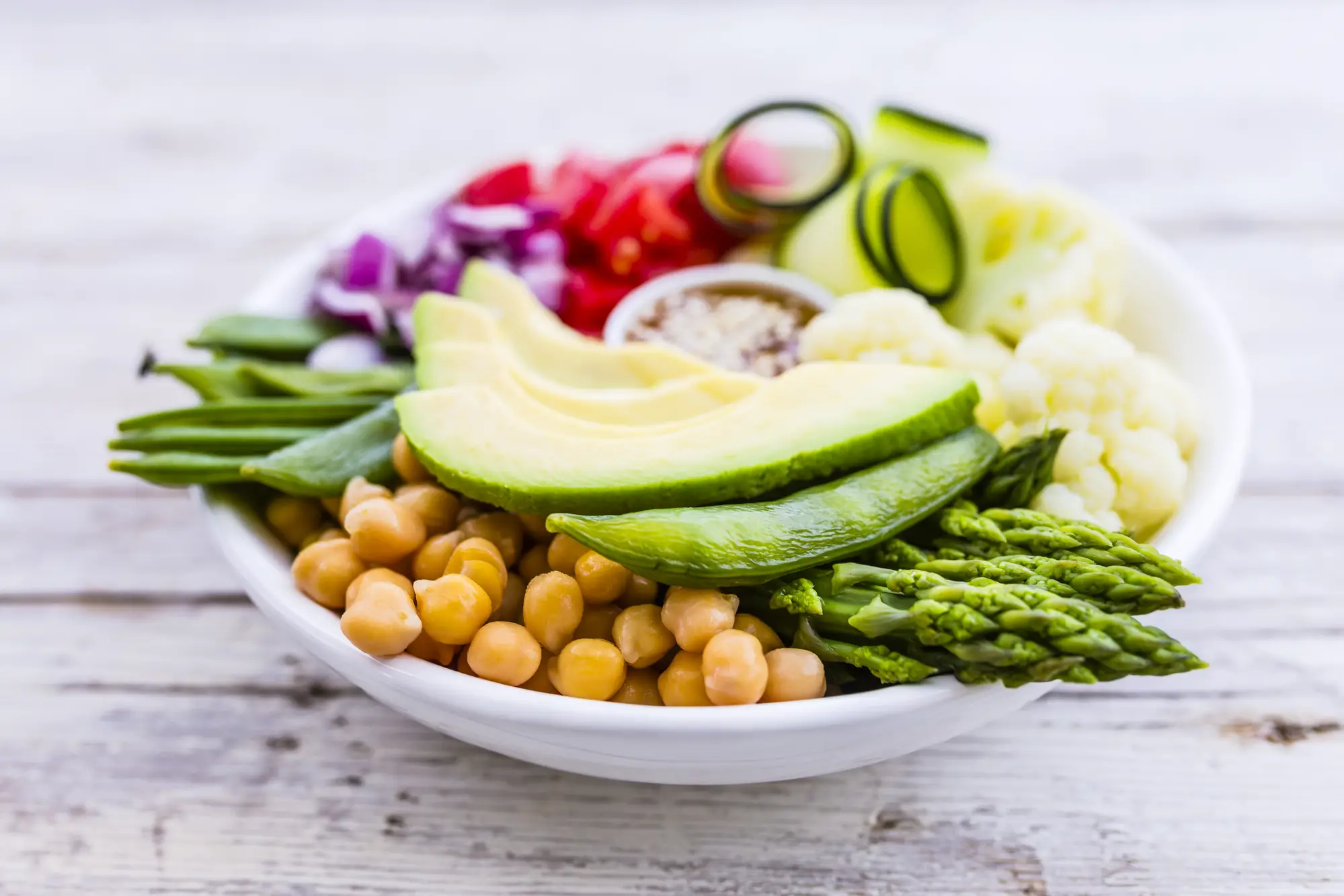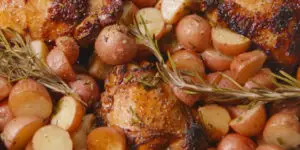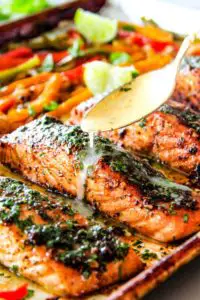What we eat is more important for weight loss efforts than exercise. A rule of thumb is that losing weight is 80% diet and 20% exercise.
This is mostly true.
Often we exercise and get hungrier and then we eat more. So there must be more to it than that, right? Let’s dive in to a healthy weight loss plan.
The Role Food Plays in Weight Loss
Often we hear about fat burning. What we don’t realize is that we burn the fat that we eat. So a keto diet is a high fat burning diet because you eat a lot of fat.
The question we need to explore is how to burn body fat.
This is where we look into food that have high thermogenesis. When we eat protein, it has this high thermogenesis which promote fat burning.
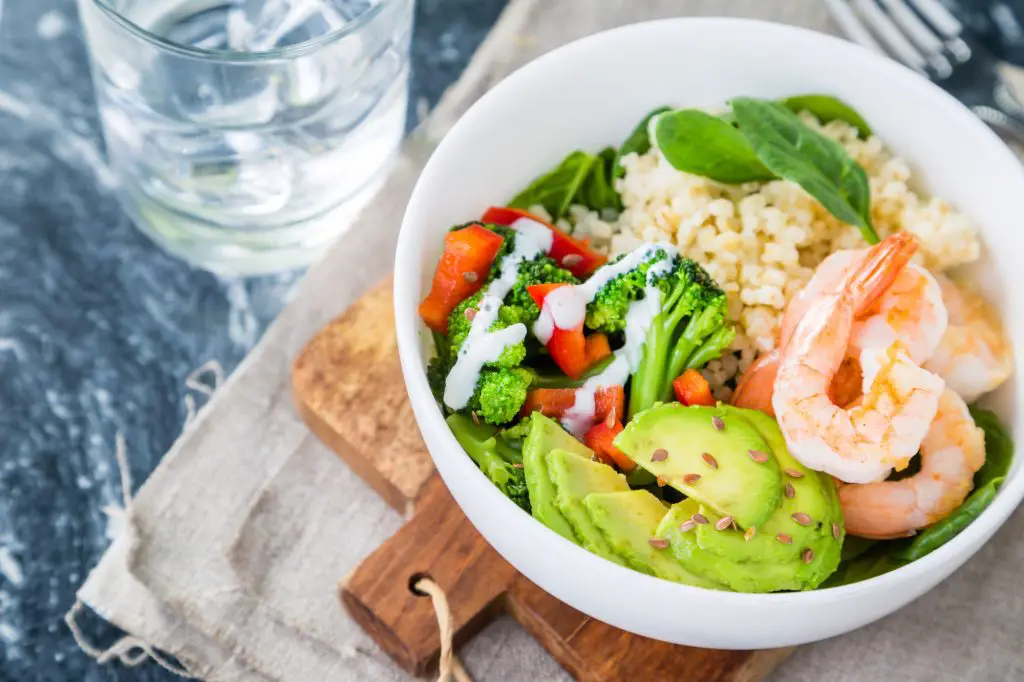
The Role Exercise Plays in Weight Loss
Exercise has many health benefits. Walking daily helps keep your joints in good shape. Stretching keeps you limber and ensures you will have better balance as you age.
Weight lifting to build up and maintain muscle mass is one of the best things you can do to help you lose weight. Muscles burn fat throughout the day and improves your metabolism. You know that we lose muscle mass as we age. So get some hand weights or exercise bands and build back your body.
Cardio helps keep your heart healthy and happy. But it doesn’t burn fat like you’d think. And there have been studies showing that it makes women hungrier which works against us in the long run.
And then there’s the short but intense bursts of exercise. You’ve probably seen advertisements for working out only 10-20 minutes a day. There is science behind that.
High Intensity Interval Training (HIIT) workouts have been shown to improve insulin resistance. You work hard for a set period of time, and then spend time recovering doing very low intensity movements.
Tabata exercise is a type of HIIT that’s more defined with shorter rest periods. It was developed by Dr. Izumi Tabata in 1996.
The bottom line is get your movement but don’t out-eat your exercise.

What should I eat when trying to lose weight?
You will lose weight if you eat fewer calories than what your body burns during the day. There are many rules of thumbs out there to calculate what your body burns each day. It’s good to use whatever works for you.
Your body burns a certain number of calories each day just to survive. Then there’s calories burned for getting around (and this is where walking helps a lot) and when you exercise. Finally there’s the calories you burn after exercise. Not everyone will have this. A good muscle building workout will aid your weight loss journey by providing an afterburn effect.
So what should you eat?
To promote fat loss, you want to eat good protein, foods with fiber, moderate healthy fats, and stay away from sugar and high sodium.
Choosing Good Lean Protein
Like weight lifting, eating protein causes your body to burn more body fat through thermogenesis. It’s important to have protein with every meal – including snacks.
This could mean putting some salmon on a bed of lentils for lunch, or having a hard-boiled egg with some fresh fruit or vegetables as a snack
Including an appropriate amount of protein for your body needs in your diet while losing weight is essential for several reasons. Let me break it down for you:
- Boosts Metabolism: Protein has a high thermic effect, meaning that it requires more energy to digest compared to fats and carbohydrates. This can lead to an increase in calorie expenditure, helping to boost metabolism and support weight loss efforts.
- Preserves Lean Muscle Mass: When you are in a calorie deficit to lose weight, your body may also break down muscle tissue for energy. Consuming enough protein helps preserve lean muscle mass, ensuring that the majority of weight lost comes from fat rather than muscle.
- Increases Satiety: Protein-rich foods are generally more satisfying and keep you feeling full for longer. This can help curb cravings, reduce snacking, and prevent overeating, ultimately supporting weight loss by promoting better appetite control.
- Supports Muscle Recovery and Repair: Physical activity, including exercise, is often part of a weight loss journey. Protein plays a crucial role in muscle recovery and repair after workouts, aiding in the development and maintenance of lean muscle mass.
- Regulates Blood Sugar Levels: Including protein with your meals can help slow down the digestion and absorption of carbohydrates, preventing rapid spikes in blood sugar levels. This can contribute to better insulin control and help manage hunger and cravings.
- Helps to Control Cravings: Protein is known to have a satiating effect, which can help control cravings for unhealthy foods. By including protein-rich options in your diet, you may feel more satisfied and less inclined to reach for sugary or high-calorie snacks.
It’s important to note that individual protein needs may vary based on factors such as age, gender, activity level, and overall health. Consulting with a registered dietitian or healthcare professional can provide personalized guidance on protein intake while losing weight.
Getting Enough Fiber
Another way to lose weight from your diet is increasing the amount of fiber you eat. It not only helps your body absorb the nutrients it needs better, but it also helps you feel fuller longer.
Some people drink water with chia seeds. They are a nutritional powerhouse, packed with fiber as well as protein, omega-3 fatty acids, and various minerals. Incorporating them into your diet is easy – sprinkle them on top of smoothie bowls or mix them into yogurt.
Vegetables are a great source of fiber and can easily be incorporated into any meal – try adding a side of roasted Brussels sprouts or steamed broccoli and even roasted cauliflower steaks to your dinner plate.
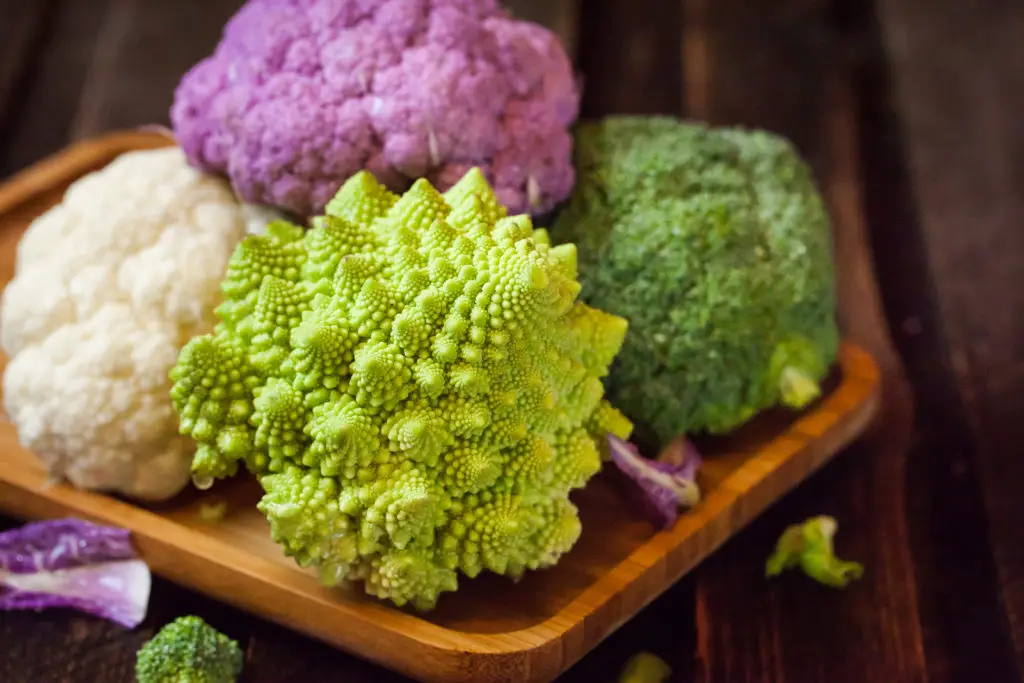
Getting Your Healthy Fats
Eating healthy fats is important because they offer numerous benefits for our overall health and well-being. These fats, such as monounsaturated and polyunsaturated fats, play a crucial role in maintaining good cholesterol levels, supporting cell growth, providing energy to the body, protecting organs, and regulating blood pressure.
According to Houston Methodist, healthy fats can help lower bad cholesterol (LDL) while boosting good cholesterol (HDL). This contributes to a healthier heart and reduces the risk of heart disease. Furthermore, Harvard Health emphasizes that fats are essential for providing energy, protecting organs, and supporting cell growth.
In addition to these benefits, healthy fats also play a role in hormonal health and provide a layer of insulation for our bodies, as mentioned by Nutrition Stripped. They assist in the absorption of fat-soluble vitamins (A, D, E, and K) and antioxidants, which are vital for overall health.
Studies have shown that consuming healthy fats, particularly omega-3 fatty acids found in fatty fish, can help maintain healthy cholesterol levels, as explained by Biotics Research. These fats have been linked to reduced inflammation, stabilized heart rhythms, and other positive health effects.
Choosing healthy fats, such as monounsaturated and polyunsaturated fats, is crucial for heart health and managing cholesterol levels, according to HelpGuide. These fats are commonly referred to as “good fats” because they promote heart health.
So, make sure to include sources of healthy fats in your diet, such as avocados, nuts, seeds, olive oil, and fatty fish, to reap the benefits they offer for your health.
Your Bonus Buddy to Help You Lose Weight
Water is like that best buddy who’s always got your back – especially when it comes to weight loss.
Firstly, water is 100% calorie-free but helps you burn more calories. It’s like a secret agent working behind the scenes, boosting your metabolism without you even noticing! And the best part? It might even help suppress your appetite. Imagine that – feeling full without having to munch on anything! (Source: Healthline)
Now, you might be wondering, how does water help with workouts? Well, water is essential for our muscles and connective tissues to function properly. So, whether you’re lifting weights or running a marathon, drinking enough water can make your exercise routine more effective. (Source: Medical News Today)
But wait, there’s more! Drinking water before meals can naturally reduce calorie intake, which could support healthy weight management. It’s like a magic trick – poof! Lower calorie intake without any extra effort! (Source: Everyday Health)
And did you know that water plays a critical role in metabolizing stored fat? Even a slight decrease in hydration can affect this process. So, keep sipping that H2O to keep the fat away! (Source: EMetabolic)
And remember our friend thermogenesis? Water can improve your metabolism leading to more weight loss.


